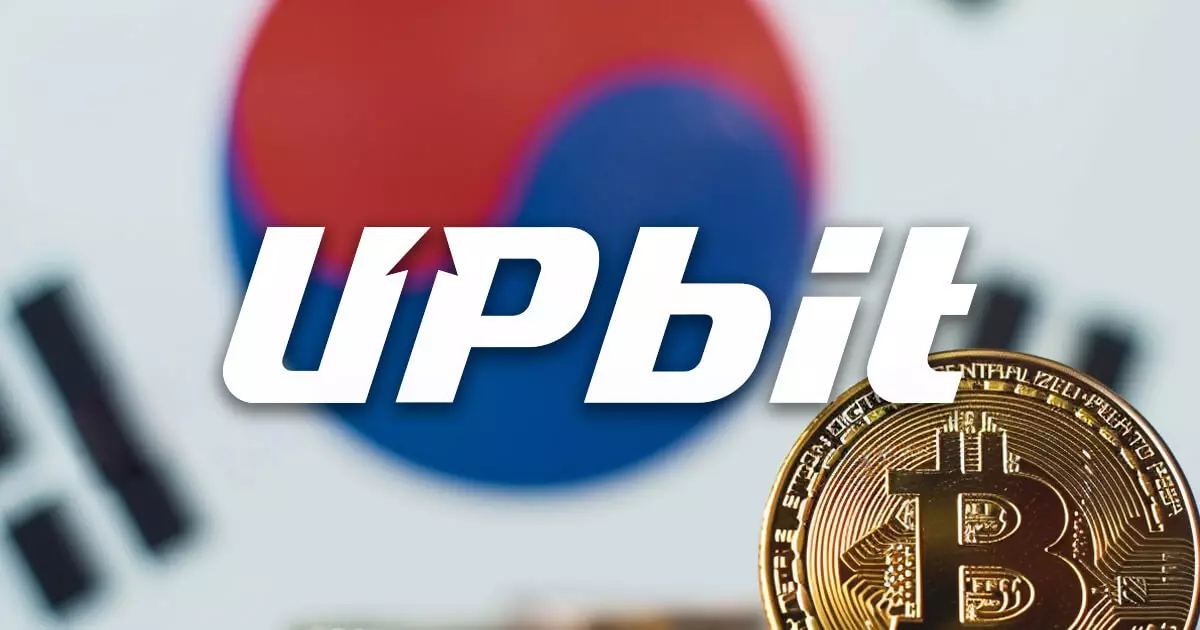South Korea, a nation at the forefront of the cryptocurrency revolution, is now grappling with regulatory challenges stemming from the dominance of its largest trading platform, Upbit. Recent announcements from the Financial Services Commission (FSC) reveal a forthcoming investigation aimed at understanding the extent of Upbit’s influence on the broader virtual asset market. The FSC Chairman, Kim Byung-hwan, signaled that this inquiry is essential to address apprehensions about Upbit’s perceived market monopolization. Upbit’s market position is under particular scrutiny due to its intertwined relationship with K Bank, South Korea’s pioneering internet-only bank, hinting at a more extensive issue regarding concentration within the digital finance sector.
K Bank, which commenced operations in 2017, is reportedly eyeing an Initial Public Offering (IPO) that could potentially yield approximately 984 billion won (around $731.64 million). However, the synergy between Upbit and K Bank raises substantial concerns about systemic risks in the financial system. Lawmaker Lee Kang-il highlighted a striking statistic: Upbit deposits constitute nearly 20% of K Bank’s total deposits, posing a risk of a bank run should any disruptions occur within Upbit’s operations. This revelation indicates a precarious interdependence that could have cascading effects on broader financial stability if not carefully managed.
Moreover, Lee’s critique extends beyond mere numbers; he has pointed to K Bank’s high-interest rates of 2.1% on Upbit-related deposits as unsustainable. With the bank operating under low-profit margins, such practices could lead to severe financial repercussions both for the bank and its customers if the relationship falters. This situation emphasizes the need for better regulatory standards around interest rates and financial practices, particularly in emerging sectors like digital finance.
The FSC has pledged to conduct a thorough review of K Bank’s impending IPO, suggesting that concerns raised regarding their close ties with Upbit cannot be brushed aside. This investigation also highlights the evolving role of digital asset oversight within the financial regulatory framework in South Korea. The Virtual Asset Committee will lend its expertise to this inquiry, aiming to ensure that any collaborations between financial institutions adhere to the longstanding principle of maintaining a separation between finance and industry. This principle is crucial to fostering a fair and competitive financial landscape, as well as securing customer confidence in both traditional and digital banking avenues.
Compounding these challenges is the recent memorandum of understanding (MOU) signed between Upbit’s parent company, Dunamu, K Bank, and BC Card. The agreement aims to forge a new digital financial services ecosystem by merging the strengths of each entity’s technological capabilities. However, this partnership raises additional questions about market competition and the potential for monopolistic practices that could undermine the integrity of South Korea’s digital finance sector.
The investigation launched by the FSC represents a pivotal moment for South Korea’s cryptocurrency and digital banking landscape. As regulatory bodies take a closer look at the interconnectedness of financial institutions and trading platforms, it becomes critical for stakeholders in the digital finance arena to prioritize transparency and risk management to foster sustainable growth in this rapidly evolving field.


Leave a Reply